Filter by
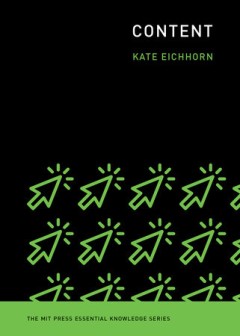
Content
"Eichhorn's EKS book will unpack the idea of content, whose emergence reflects a major shift in the way cultural products are produced and consumed, with far-reaching implications for society"--OCLC-licensed vendor bibliographic record.
- Edition
- -
- ISBN/ISSN
- 9780262368216
- Collation
- 1 online resource.
- Series Title
- -
- Call Number
- -

Social engineering :how crowdmasters, phreaks, hackers, and trolls created a …
"From the phone phreaks of the 1970s to Anonymous, how how hackers deploy persuasion, helpfulness, manipulation, and deception to gain access to sensitive information"--OCLC-licensed vendor bibliographic record.
- Edition
- -
- ISBN/ISSN
- 0262368927
- Collation
- 1 online resource.
- Series Title
- -
- Call Number
- -
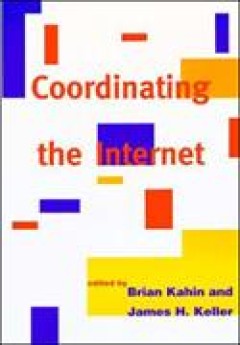
Coordinating the Internet
For years, the world saw the Internet as a creature of theU. S. Department of Defense. Now some claim that the Internet is aself-governing organism controlled by no one and needing nooversight. Although the National Science Foundation and othergovernment agencies continue to support and oversee criticaladministrative and coordinating functions, the Internet is remarkablydecentralized and uninst…
- Edition
- -
- ISBN/ISSN
- 9780262286909
- Collation
- -
- Series Title
- -
- Call Number
- -
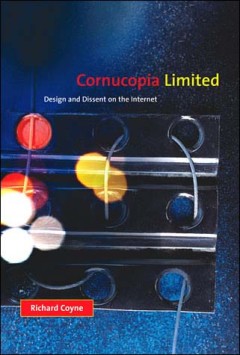
Cornucopia Limited: Design and Dissent on the Internet
Title from title screen."The network economy presents itself in the transactions of electronic commerce, finance, business, and communications. The network economy is also a social condition of discontinuity, indefinite limits, and in-between spaces. In Cornucopia Limited, Richard Coyne uses the liminality of design - its uneasy position between creativity and commerce - to explore the network …
- Edition
- -
- ISBN/ISSN
- 9780262255950
- Collation
- 1 online resource (x, 284 pages)
- Series Title
- -
- Call Number
- -
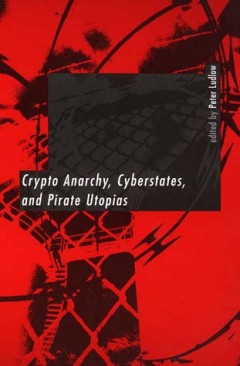
Crypto Anarchy, Cyberstates, and Pirate Utopias
- Edition
- -
- ISBN/ISSN
- 9780262256582
- Collation
- -
- Series Title
- -
- Call Number
- -
- Edition
- -
- ISBN/ISSN
- 9780262256582
- Collation
- -
- Series Title
- -
- Call Number
- -
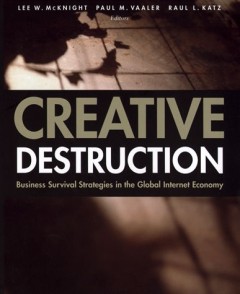
Creative Destruction: Business Survival Strategies in the Global Internet Eco…
A collection of 12 papers which "grew out of a March 1999 symposium held at the Fletcher School of Law and Diplomacy, Tufts University. "Creative Destruction -- or Just Destruction? Telecoms in Transition: Survival and Success in the Global Internet Economy" was co-sponsored by the Fletcher School's Hitachi Center for Technology and International Affairs, the Fletcher School's Edward R. Murrow …
- Edition
- -
- ISBN/ISSN
- 9780262276788
- Collation
- 1 online resource (xii, 289 pages) :illustrations
- Series Title
- -
- Call Number
- -
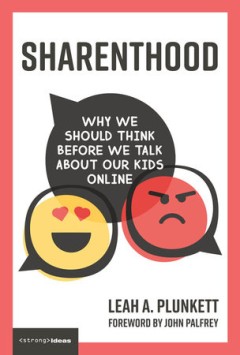
Sharenthood: how the digital tech habits of parents, teachers, and other tru…
OCLC-licensed vendor bibliographic record.
- Edition
- -
- ISBN/ISSN
- 9780262354080
- Collation
- 1 online resource (232 pages).
- Series Title
- -
- Call Number
- -
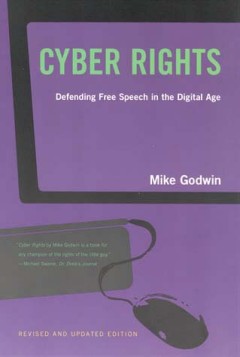
Cyber Rights: Defending Free speech in the Digital Age
Lawyer and writer Mike Godwin has been at the forefront of the struggle to preserve freedom of speech on the Internet. In Cyber Rights he recounts the major cases and issues in which he was involved and offers his views on free speech and other constitutional rights in the digital age. Godwin shows how the law and the Constitution apply, or should apply, in cyberspace and defends the Net agains…
- Edition
- -
- ISBN/ISSN
- 9780262286978
- Collation
- -
- Series Title
- -
- Call Number
- -
Dark Fiber: Tracking Critical Internet Culture
"In Dark Fiber, Lovink combines aesthetic and ethical concerns and issues of navigation and usability without ever losing sight of the cultural and economic agendas of those who control hardware, software, content, design, and delivery. He examines the unwarranted faith of the cyber-libertarians in the ability of market forces to create a decentralized, accessible communication system. He studi…
- Edition
- -
- ISBN/ISSN
- 9780262278584
- Collation
- 1 online resource (xi, 382 pages).
- Series Title
- -
- Call Number
- -
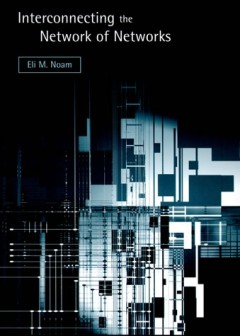
Interconnecting the network of networks
This book describes the transformation of telecommunications from national network monopolies to a new system, the "network of networks," and the glue that holds it together, interconnection. By their very nature, monopoly-owned networks provided a small number of standardized, nationwide services. Over the past two decades, however, new forces in the world economy began to unravel this traditi…
- Edition
- -
- ISBN/ISSN
- 9780262280693
- Collation
- 1 online resource (ix, 318 pages) :i llustrations
- Series Title
- -
- Call Number
- 005 NOA i
 Computer Science, Information & General Works
Computer Science, Information & General Works  Philosophy & Psychology
Philosophy & Psychology  Religion
Religion  Social Sciences
Social Sciences  Language
Language  Pure Science
Pure Science  Applied Sciences
Applied Sciences  Art & Recreation
Art & Recreation  Literature
Literature  History & Geography
History & Geography